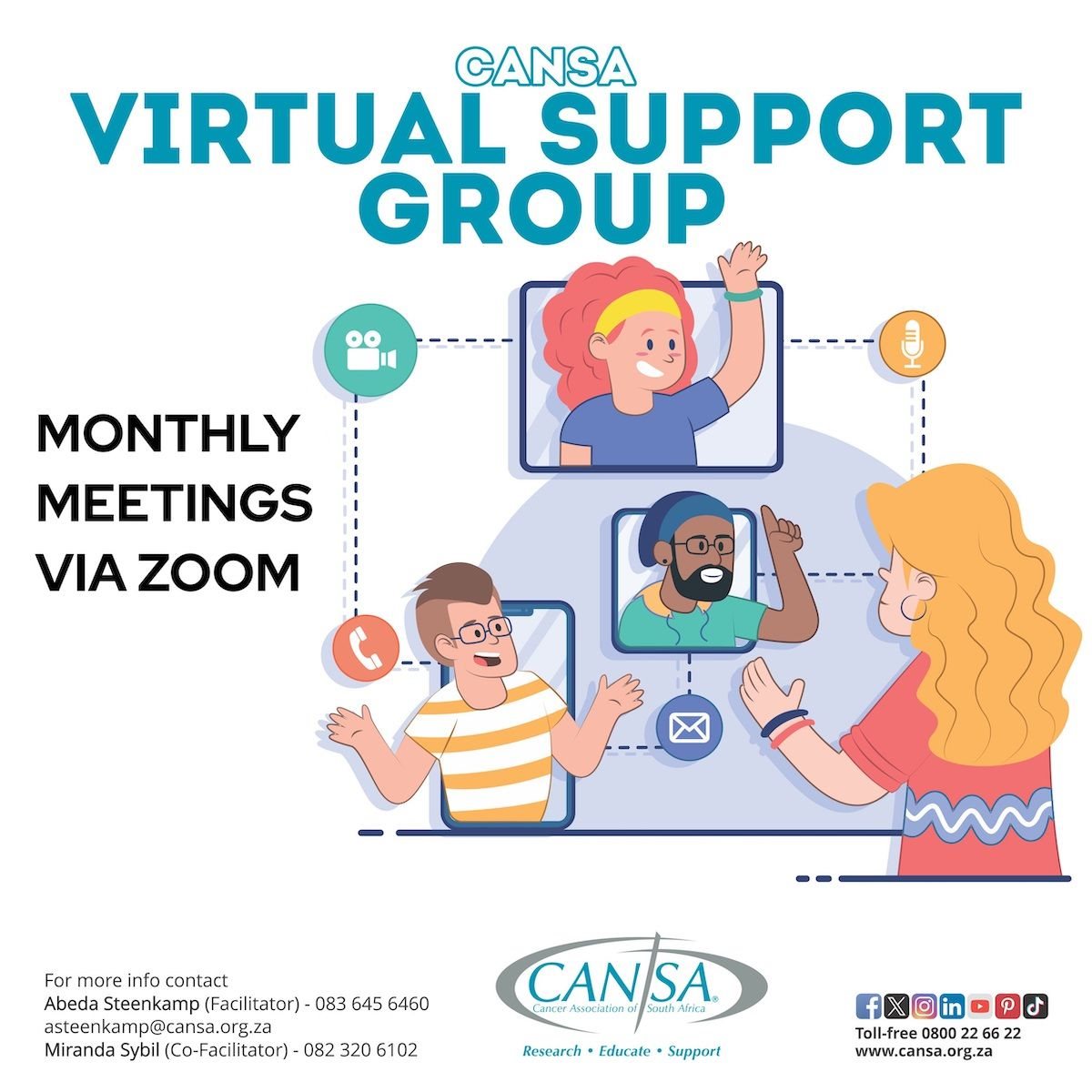
Top stories





Marketing & MediaWarner Bros. was “nice to have” but not at any price, says Netflix
Karabo Ledwaba 1 day

More news

Logistics & Transport
Maersk reroutes sailings around Africa amid Red Sea constraints

















June sees people around the world honouring those who are facing cancer and the importance of a supporting community.
“Many cancer survivors report feeling isolated from when they are diagnosed,” says Gretchen Minnaar, Cansa’s services manager: Psychosocial Support. “They find that friends, colleagues and even some family members avoid them rather than showing up and providing some comfort or even just companionship.”
What’s more, cancer survivors’ need for support does not end with a clean bill of health. Cancer survivors often face long-term challenges including the fear of recurrence, depression, pain, memory problems, changes in various bodily functions and relationship issues.
Cansa provides extensive support to survivors and those affected by the dread disease and it is no small ask. Each year, over 115,000 South Africans are diagnosed with cancer according to the South African National Cancer Registry with many more cases that are not reported or registered.
The scale of the need has led Cansa to launch a virtual support group to boost the reach it has already achieved through its face-to-face support groups, Facebook and WhatsApp support groups, run across South Africa. The virtual support group, which was launched on 24 May 2025 and is facilitated by Cansa, will be run monthly on Zoom. Managed by trained counsellors, the topics vary, and the format is relaxed and supportive and encourages engagement and input by survivors.
Cansa runs WhatsApp support groups on both a national and regional basis, with regional groups limited to patients in a certain geographical area. Nationally there are groups that offer bereavement, caregiver and newly diagnosed patient support. There are also groups dedicated to women survivors and groups for men survivors. Then there is an ostomy support group and one for teens from 13 to 17 years old.
On Facebook, Cansa has set up three support groups: Cancer Survivors – Champions of Hope for cancer survivors (patients/those in remission), Caring for the Caregivers for caregivers of cancer survivors (patients), and TLC – Childhood Cancer Support for children and parents/guardians affected by cancer.
A member of the Cansa Champions of Hope Facebook group says it’s like a beautiful family and that she has gained a sister. “We have walked, and are still walking, this journey together,” she says. “I am so thankful for all the support I have received from the group since I was diagnosed. I had a double mastectomy in December and have just completed 20 days of radiation treatment. It was not easy, but I made it and am now in remission.”
Another survivor, Wendy de Rooij suggests that treatment facilities need to be made more aware of how to put people in touch with Cansa’s support groups. “I would not have found my amazing group if it was not for a desperate late night Google search,” she says. “These people have given me far more practical information that any other healthcare group I have been part of since my cancer journey began.”
The support groups encourage members to share their stories. “Interacting with people who understand your life experience is an invaluable form of support,” adds Minnaar. “It’s so beneficial to hear about the coping strategies of someone who has been or is currently in the same situation as you are.”
Ovarian cancer survivor Rina van der Merwe states during her treatment and recovery, Cansa’s support groups meant that she always had a place to talk. “And reading about other warriors’ journeys also helped me a lot,” she explains.
Cancer patients and survivors, as well as their caregivers, family members and anyone else affected by cancer, can join one of these groups by simply completing a form on Cansa’s website at Cansa.org.za. To date, Cansa offers support in English, Afrikaans, isiXhosa and isiZulu.
There is also a wealth of information and resources that can be accessed through Cansa’s website. They include: The iSurvivor and Metastatic Breast Cancer Online Support Programme guides; the CancerCare Coping Kit audio programme; the ‘What is Cancer Booklet,’ Palliative Care Resources for pain management, and the Cansa Pain App; dietary tips and nutritious recipes and Cansa’s Free2Bme Adolescent and Young Adult mini site.
Cansa is committed to connecting people facing cancer to information, day-to-day assistance, and emotional support. The aim of the association is to ensure that cancer survivors and their support structure do not have to face cancer alone. However: